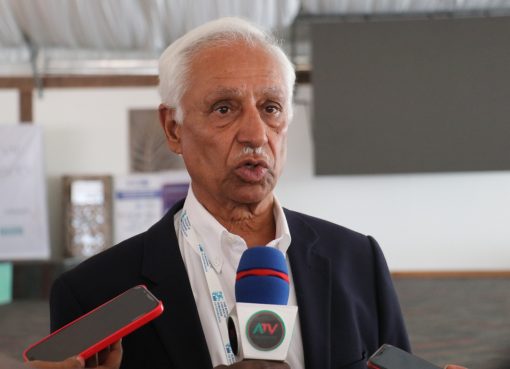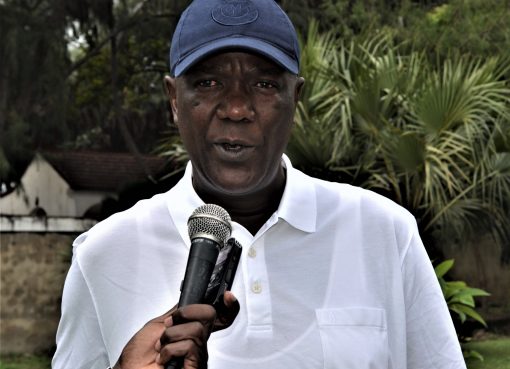It is estimated that over 60 percent of Kenyan men suffering from poor mental health either do not know it or are not seeking treatment.
According to Young African Women Initiative (YAWI) executive director Ms. Fidelis Karanja, the situation has worsened following the outbreak of Covid-19 pandemic due to lost incomes and increased cases of Gender Based Violence.
In a bid to curb the predicament, YAWI has partnered with community based organizations to roll out counseling services targeting heads of households, particularly men within low income settlements in Nakuru.
She said in the past decade, cases of suicide in the country have risen to 58 per cent with data showing that more men are likely to die through suicide than women.
Ms. Karanja said as initiatives are rolled out to contain the rise in cases of gender-based violence, early marriages and teenage pregnancies under current grip of Covid-19 pandemic, mental health wellness should be incorporated in the campaigns as the vices also had a potential to lead to traumatic conditions.
In an interview with KNA in Nakuru during a training session on mental health Monday, the executive director observed that in order to effectively tackle mental health issues, men need to be encouraged to talk freely about their feelings.
However, she regretted that society is not used to men voicing out their issues, noting that such efforts are often mocked, met with outright hostility and labeled as a sign of weakness.
The ministry of Health has already raised an alarm over the status of mental health in the country, with the Health CS Mutahi Kagwe revealing that one in every 10 Kenyans suffer from a mental disorder. He also expressed concerns over the rise in cases of suicide.
The CS said Covid-19 had affected Kenyans lives, and particularly their mental health “in ways that were not easily noticeable.”
According to the CS, the public health actions which the government took to combat the spread of the novel coronavirus have brought about anxiety and feelings of isolation while for many families, the containment measures have yielded feelings of suffocation in enclosed spaces.
A survivor of depression who is undergoing counseling by psychiatrists under sponsorship of Haven of Dreams Community Based Organization in partnership with YAWI, Fredrick Onyango Osedo said most men have been left alone and are battling difficult situations that lead to depression and in some extreme cases, suicide.
He said portrayal of men as immune to and devoid of feelings or expressing emotions was a ticking time bomb going by the number of rising suicide cases.
Osedo said when he lost his job following the outbreak of Covid -19, the burden of catering for the needs of his wife and four children weighed up and that since men had been taught to tackle all changes without emotion the events took a toll on his mental health without his realization.
“This expectation of society that has always paraded men as superhuman has only stigmatized them resulting in homicides and suicides due to mental health challenges,” he stated.
Haven of Dreams head of programs Zipporah Nyangara said the CBO was working with 300 individuals in tackling mental health problems in the populous Free Area slums on the outskirts of Nakuru Town.
She said most mental health challenges were treatable and most people are able to continue with their normal life after treatment.
“We are teaching them to know their purpose, depression is a mental illness that is a significant contribution to rising cases of gender based violence during this Covid-19 period.
Marriages are breaking due to lost incomes, violence from intimate partners is snowballing while mental breakdown among both men and women continues to threaten the social fabric of the Kenyan society,” she stated.
Rathia Suleiman, also a beneficiary of the counseling program observed that men were suffering because people have been impatient in looking beyond the surface and finding out why individuals behave the way they do.
She expressed concern that few men with mental health challenges do not acknowledge they have a problem and opt not to seek treatment. She further observed that increased teenage pregnancies, early marriages, sexual and Gender based violence was exposing women to depression.
Her sentiments were echoed by Elisabeth Wanjiku who said the society should position itself as an ally in men’s mental health, adding that a change of attitude will help win this battle.
Wanjiku encouraged men who are victims of Gender based violence to seek help from relevant authorities.
WHO estimates that over 300 million people are affected by the condition which is linked to the suicides of over 800,000 people each year. Suicide is the second leading cause of death among youth in the 15-29 age bracket.
Two years ago, Kenya was ranked sixth with the highest number of depression cases at 1.9 million among African countries by a WHO report that had been released then.
By Jane Ngugi/David Mururia
Friday, November 22, 2024




